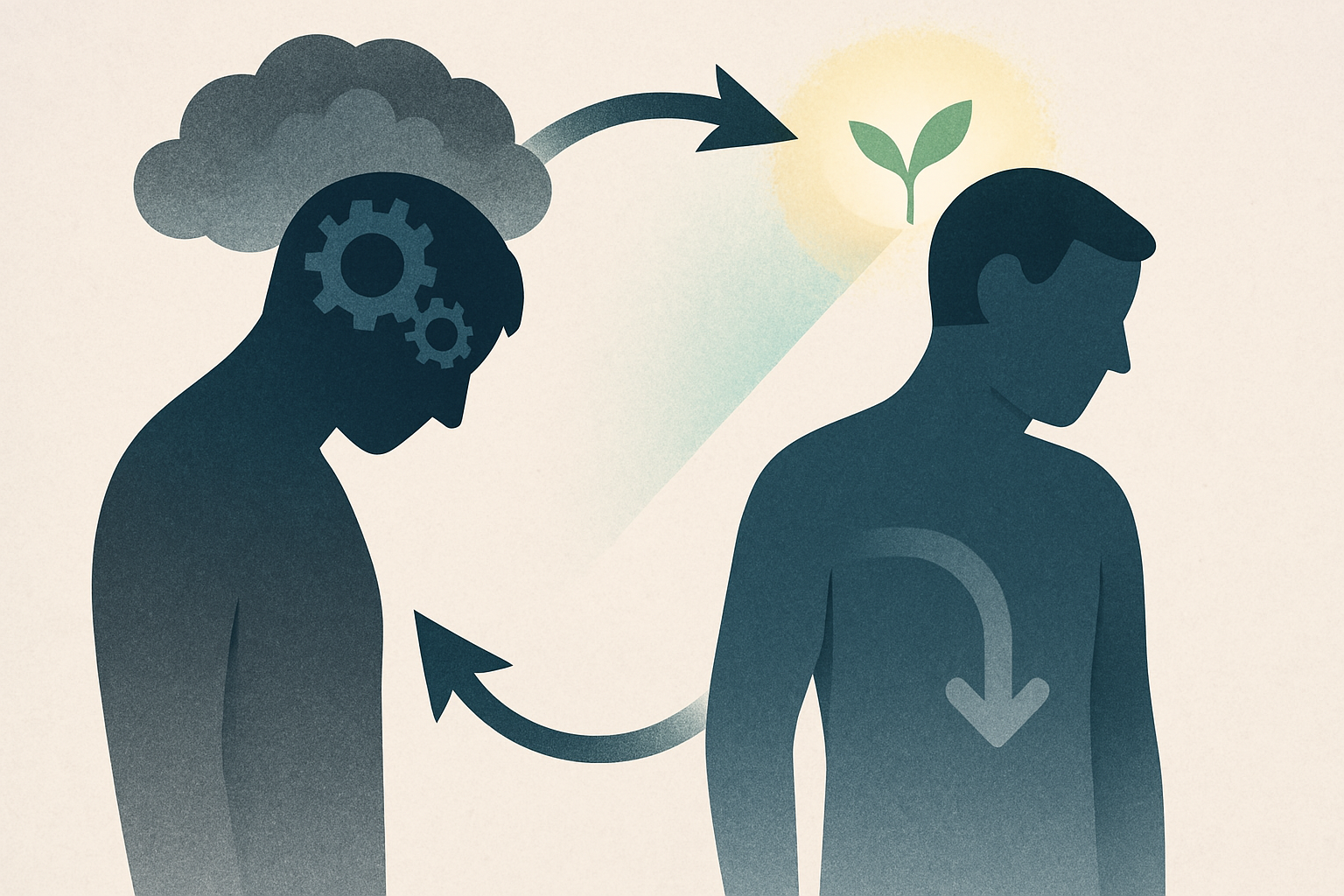When Mind and Body Are Both Affected
Erectile dysfunction (ED) is often seen as a physical issue, but for many men, the root of the problem lies deeper — in their mental health. Depression is one of the most overlooked causes of ED, and the relationship between the two conditions is complex and bi-directional. In other words, depression can cause ED, and ED can worsen depression. Breaking this cycle requires addressing both the psychological and physical aspects of the problem, not just treating the symptoms.
How Depression Leads to Erectile Dysfunction
Depression affects how you feel, think, and function — including how your body responds to sexual stimuli. Common symptoms of depression such as fatigue, low motivation, loss of interest, and poor self-esteem directly interfere with arousal and performance. In addition, depression affects the brain chemistry involved in sexual function, including dopamine and serotonin — two neurotransmitters that influence mood, desire, and erection strength.
Hormonal and Neurological Changes
Depression can disrupt the hypothalamic-pituitary-gonadal (HPG) axis, which regulates testosterone production. Low testosterone, in turn, contributes to reduced libido and poor erections. Chronic stress and depression also increase cortisol, the stress hormone, which negatively affects blood flow and nitric oxide — both essential for healthy erections. Over time, these hormonal changes create a biological environment that suppresses sexual response.
The Emotional Toll of ED
Experiencing ED can deeply affect a man’s sense of masculinity, confidence, and self-worth. If left unaddressed, it can trigger or worsen feelings of shame, inadequacy, and failure. This emotional weight can evolve into anxiety or depression, especially if ED becomes chronic or impacts a romantic relationship. Many men avoid intimacy, stop dating, or isolate themselves because of ED, which further feeds the cycle of low mood and disconnection.
Depression Medications and Sexual Side Effects
Some antidepressants — especially SSRIs (selective serotonin reuptake inhibitors) — are known to cause sexual side effects, including reduced libido, delayed ejaculation, and ED. While these medications help stabilize mood, they can interfere with sexual function in up to 50% of users. This puts men in a difficult position: choosing between emotional stability and sexual performance. However, alternative treatments and medications are available that may reduce or eliminate these side effects.
Recognizing the Signs
If you’re experiencing both ED and any of the following symptoms, depression may be a contributing factor:
- Persistent sadness or emptiness
- Loss of interest in activities you used to enjoy
- Fatigue or low energy
- Changes in sleep or appetite
- Feelings of guilt, worthlessness, or hopelessness
- Difficulty concentrating
- Thoughts of death or suicide
These are not signs of weakness — they’re signs that your mind and body need support.
Breaking the Cycle: What You Can Do
1. Seek Mental Health Support
Talking to a psychologist, therapist, or psychiatrist is one of the most important steps. Therapy — especially cognitive behavioral therapy (CBT) — helps identify and reframe negative thought patterns that contribute to both depression and performance anxiety.
2. Don’t Ignore the Physical Side
Addressing the emotional side is vital, but so is supporting your physical health. Exercise, proper nutrition, sleep, and regular medical checkups all help restore balance and improve both mood and erections.
3. Talk to Your Doctor About Medication
If you’re on antidepressants and struggling with ED, speak to your doctor. There are options:
- Adjusting the dose
- Switching to a different class of antidepressants (like bupropion, which has fewer sexual side effects)
- Adding medications that counteract the sexual side effects
Never stop antidepressants suddenly without medical guidance.
4. Rebuild Confidence Through Gradual Intimacy
If ED has caused fear around intimacy, start slowly. Focus on non-sexual touch, affection, and communication with your partner. Reconnecting emotionally and physically without pressure helps reduce anxiety and rebuilds trust.
5. Move Your Body
Exercise is one of the most effective natural antidepressants. It boosts endorphins, improves self-image, increases testosterone, and enhances blood flow — all crucial for sexual function.
6. Get Enough Sleep
Depression often disrupts sleep patterns, and poor sleep worsens both ED and emotional health. Aim for 7–9 hours of restorative sleep per night. Create a relaxing bedtime routine and limit screens before bed.
7. Practice Mindfulness and Stress Reduction
Mindfulness techniques such as deep breathing, meditation, and guided visualization help calm the nervous system and shift focus away from performance pressure. They also support emotional regulation and resilience.
Involving Your Partner
If you’re in a relationship, be open with your partner. Sharing what you’re going through can reduce the sense of isolation and pressure. Most partners appreciate honesty and are willing to work through challenges together. Emotional intimacy often leads to improved sexual intimacy, even before ED fully resolves.
ED and Depression Are Treatable
Neither ED nor depression has to be permanent. Both are highly treatable with the right approach. What matters is that you take the first step — whether that’s talking to a doctor, scheduling therapy, or adjusting your lifestyle. Improvement often happens gradually, but with consistency, it does happen. You’re not broken. You’re human — and healing is possible.
